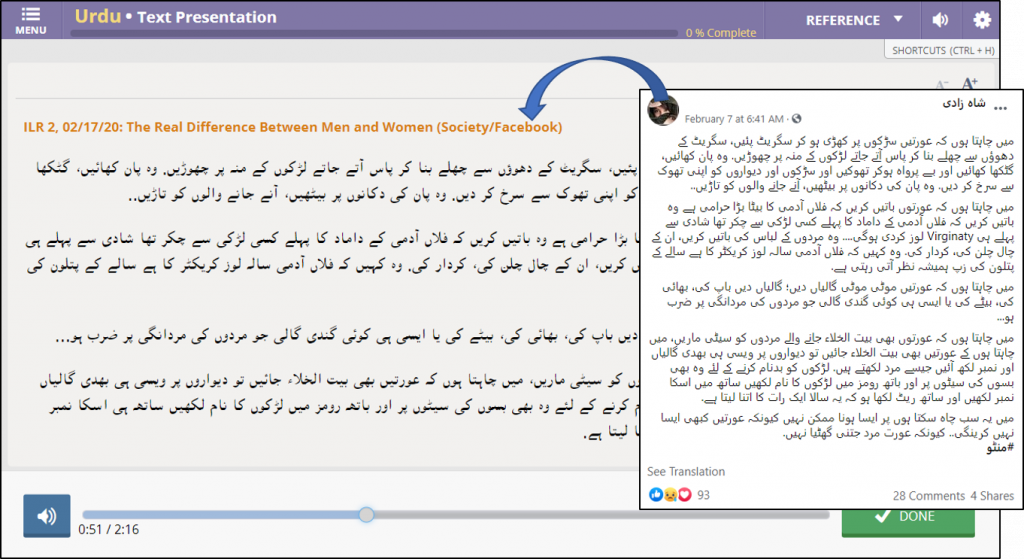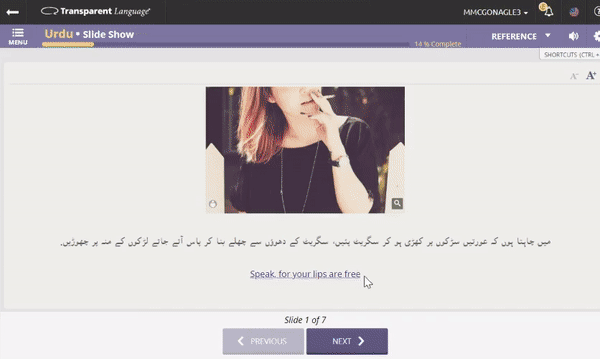Cohort Lesson of the Month – February 2020 Posted by meaghan on Mar 9, 2020 in Cohort Lesson of the Month, For Learners
Looking for recent, relevant learning materials for on-the-job sustainment? The CL-150 Cohort team has already published more than 300 new lessons so far this year, covering current events such as Coronavirus, Russia’s potential competitor to 5G, and Lebanon losing the right to vote in the United Nations.
While those lessons are based on formal news sources, the featured lesson for February is one of our first to be based on a social media source.
What are CL-150 Cohorts?
If you’re not familiar, CL-150 Cohorts are weekly lesson streams designed specifically for USG language professionals maintaining proficiency on the job. Each lesson provides a 2-hour “workout” at a specific ILR level, based on a professionally relevant, authentic source.
Why social media as a source?
Cohorts target the overlap of language, regional expertise, and cultural knowledge—three things that commonly converge on social media. That’s why this month’s featured lesson comes from an ILR 2 Urdu lesson based on a Facebook post.

Weekly Cohort lessons cover specialized domain vocabulary and grammar, but also the latest language usage, including slang, expressions, and informal speech—the kinds of language you’re likely to overhear in a conversation… or read on social media.
In terms of regional knowledge and culture, Facebook, Twitter, and other platforms are recognized as hotbeds of ideas and opinions that may not be found in more formal media like news coverage. Fawad, the lesson author, chose to base a lesson on this Facebook post because it exposes a double standard in Pakistani culture:
“The purpose of the post is to expose the things that are usually considered bad for women or girls, but when men or boys do it the society lets it go. For example, if a woman smokes then it’s considered scandalous, but it’s normal if a man is smoking.”

This Facebook post also provided the perfect context to introduce a 20th century Pakistani icon. The quote in the post is credited to Saadat Hasan Manto, considered one of Pakistan’s best writers. While Fawad is unsure whether the quote is truly from Manto, he sees the connection: Manto was known to write about the “bad side” of the society that others would not talk about:
“In the Slide Show activity, I included a link to a music video. It’s the theme song of a movie about Manto’s life and how he saw the evils of society. The theme of the song encourages people to speak out ‘bol ke lab azad hain’ (speak because your lips are free).”
The CL-150 Cohort team will continue to draw from a breadth of sources including news reports, op eds, TV shows, literature, and so on. But sustainers can expect to see social media added to the mix occasionally for further exposure into the language, culture, and region that simply can’t be found elsewhere.
Urdu sustainers, complete this month’s featured lesson to learn what’s expected of men and women in Pakistani society (and pick up some relevant vocab while you’re at it).
Sustaining a different language? Explore our available Cohorts and stay tuned for next month’s featured lesson for more behind-the-scenes action from our Cohort Team.


